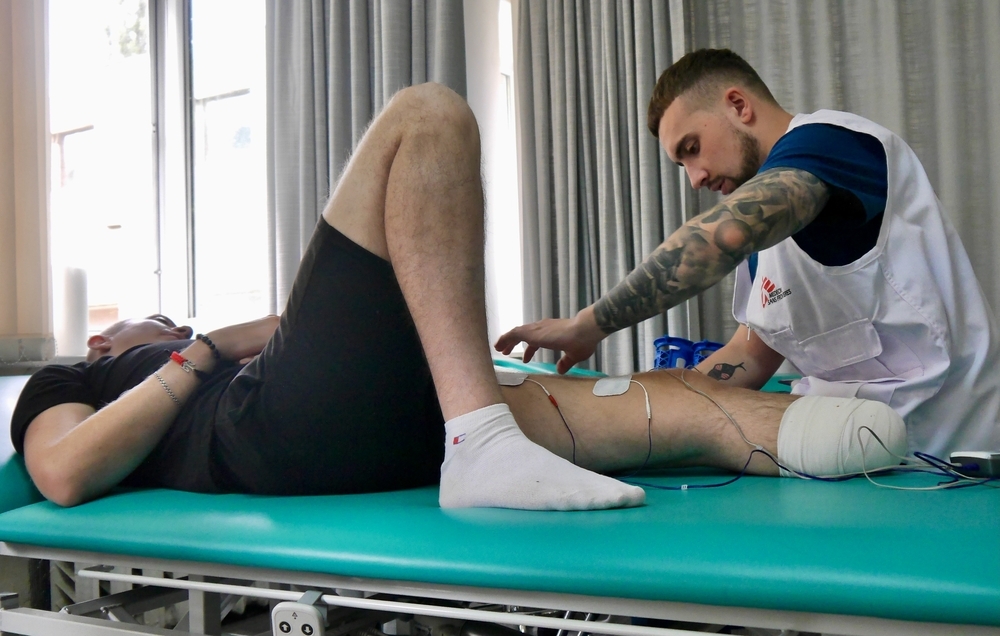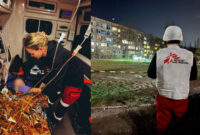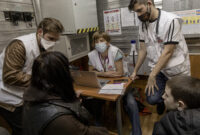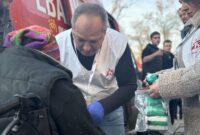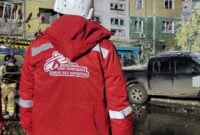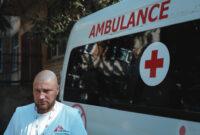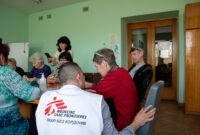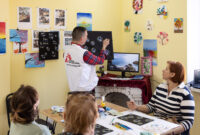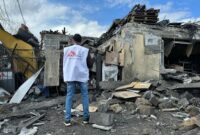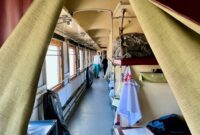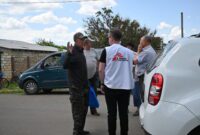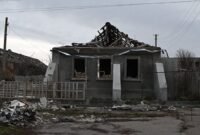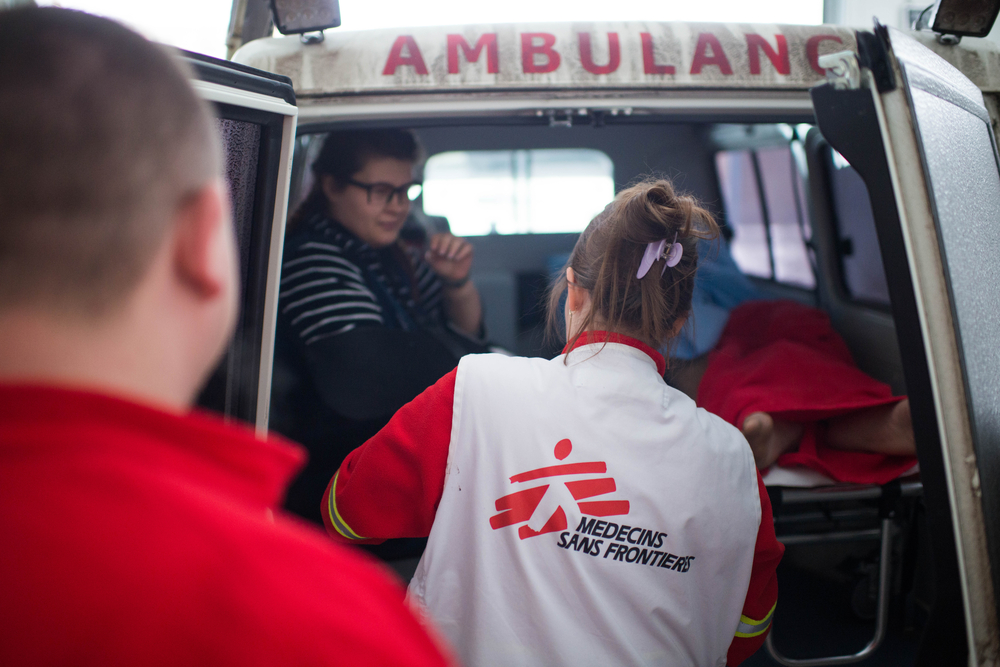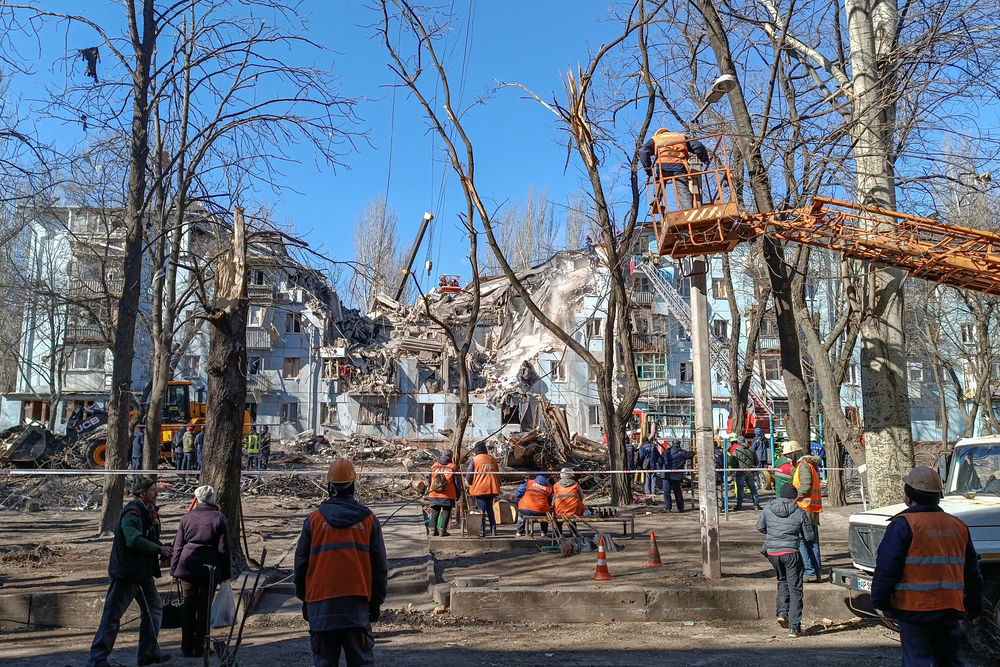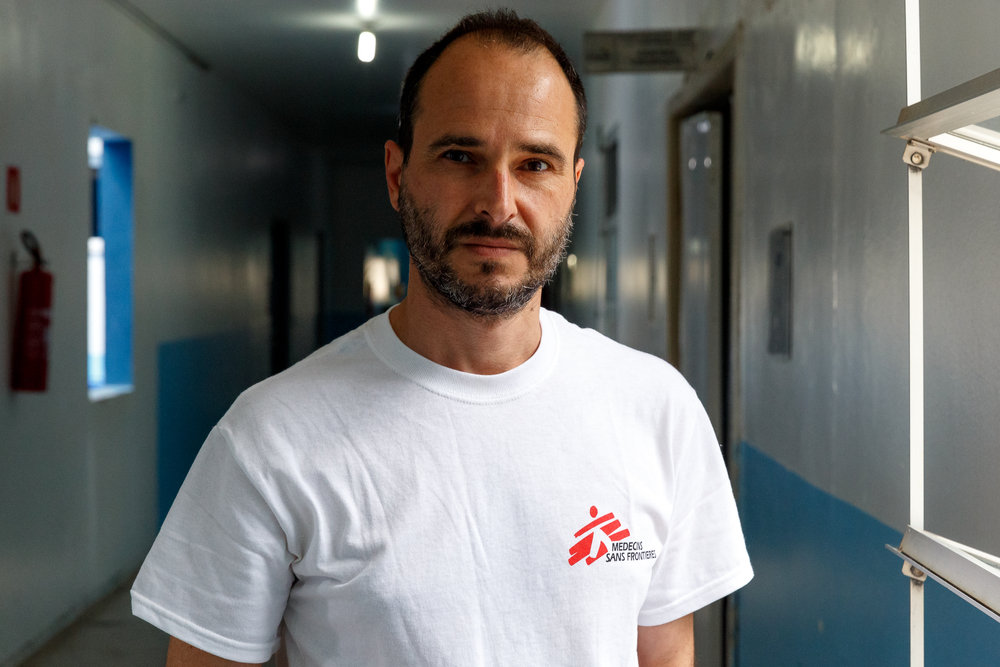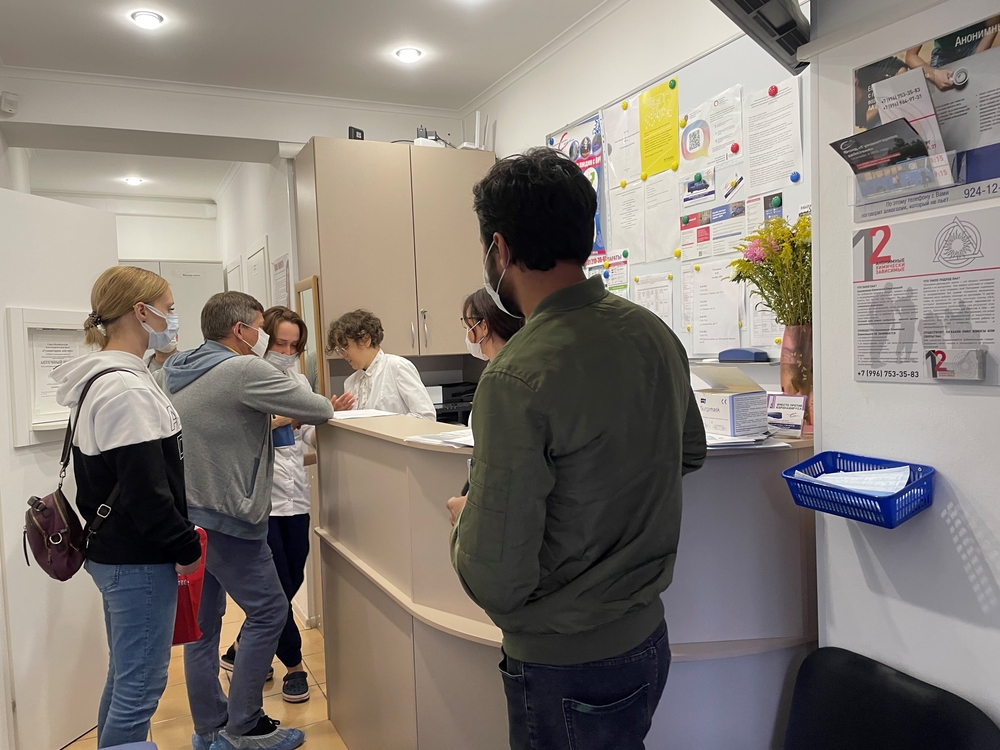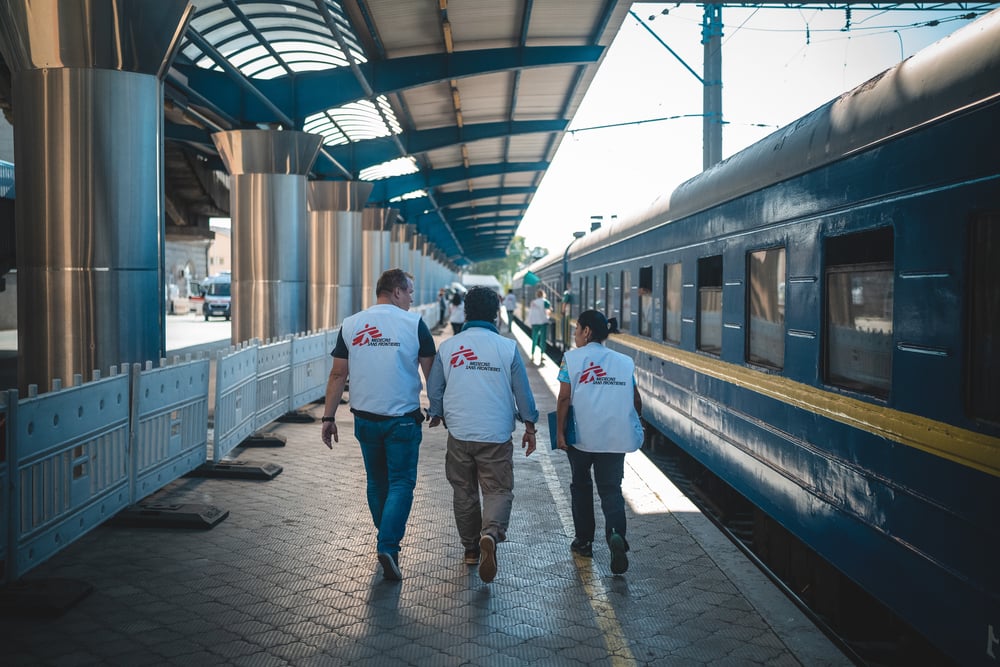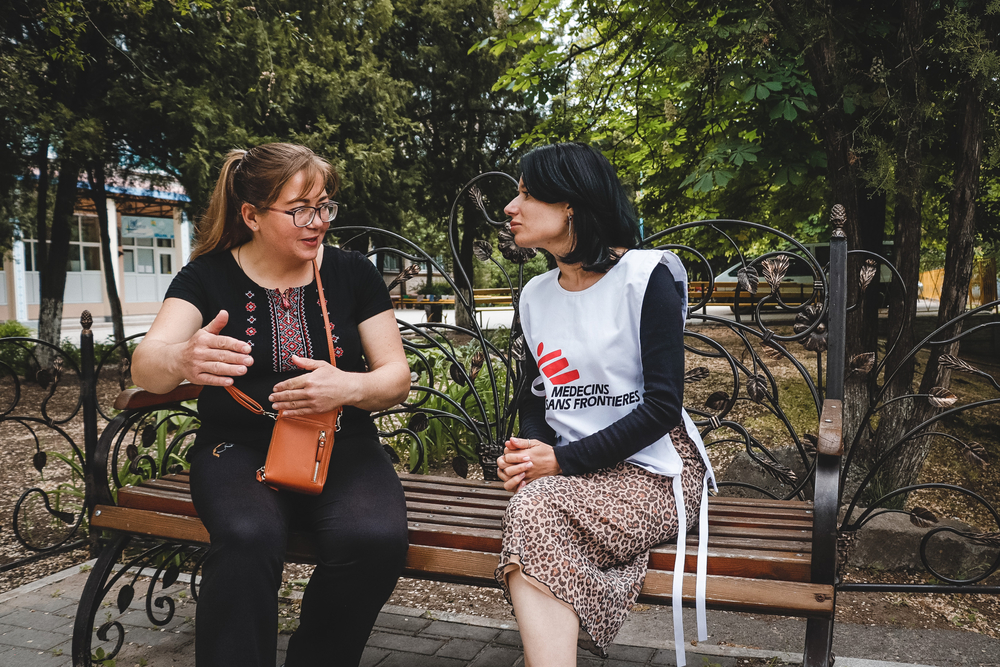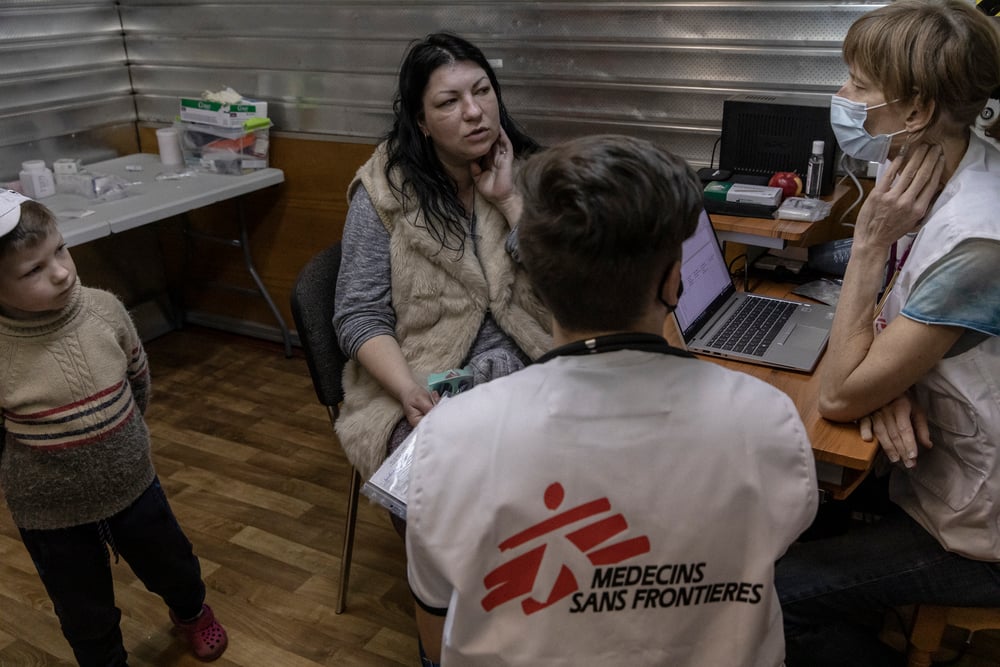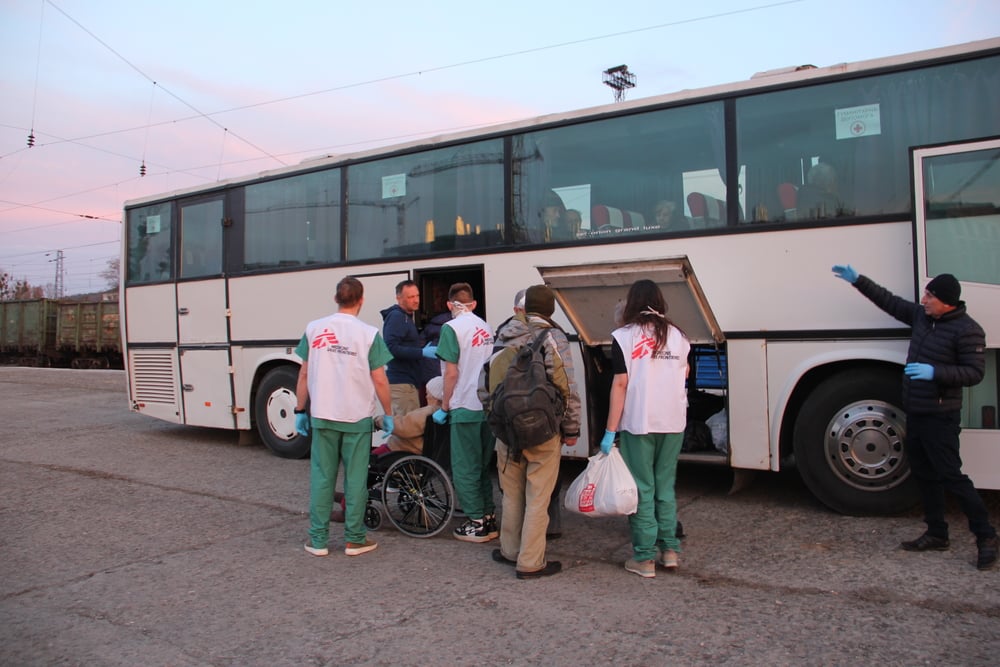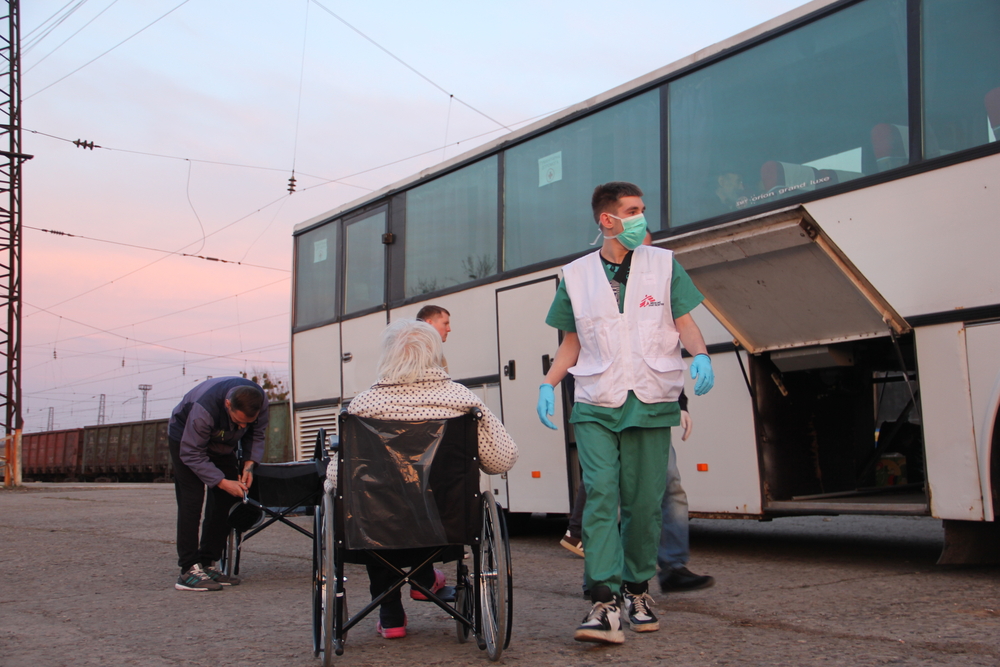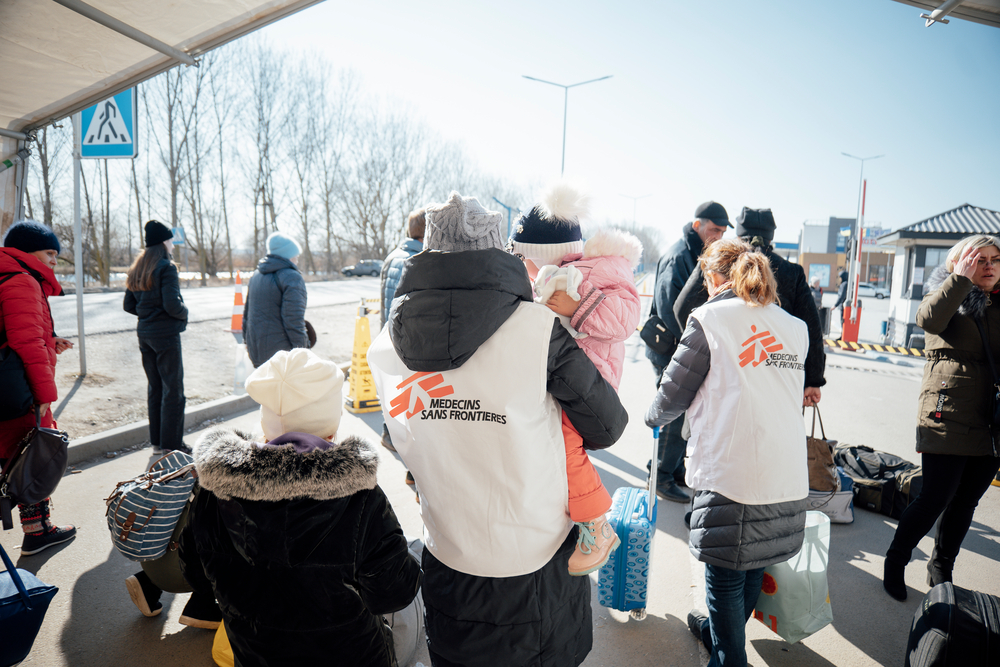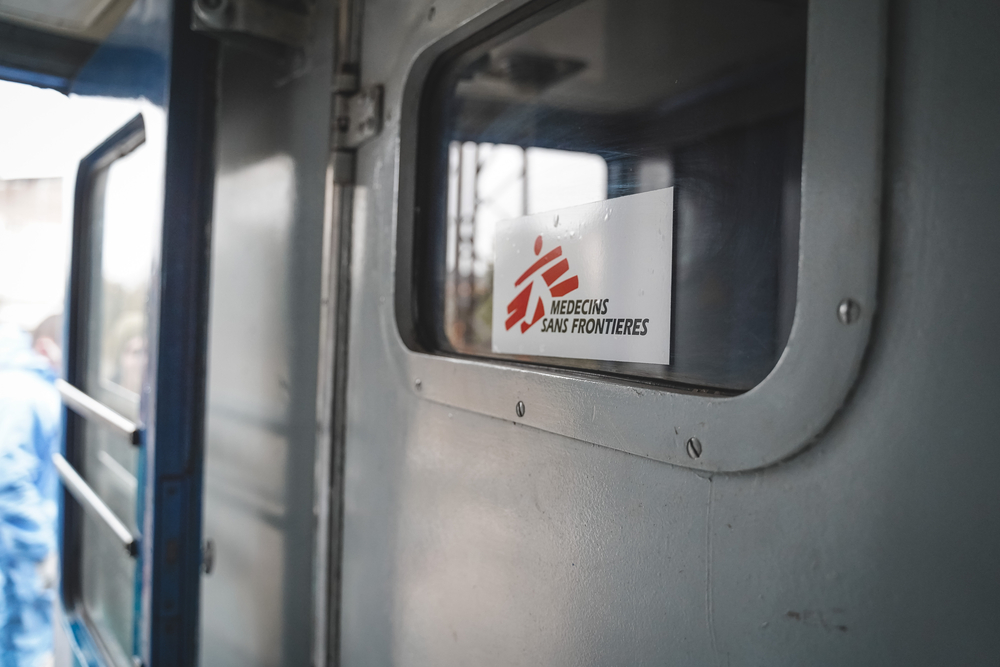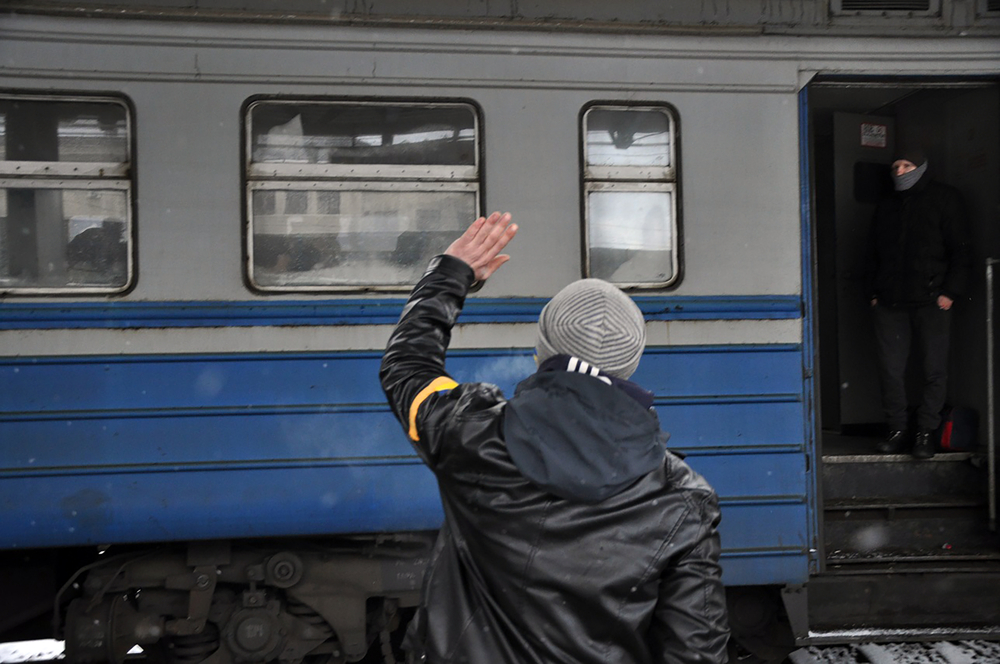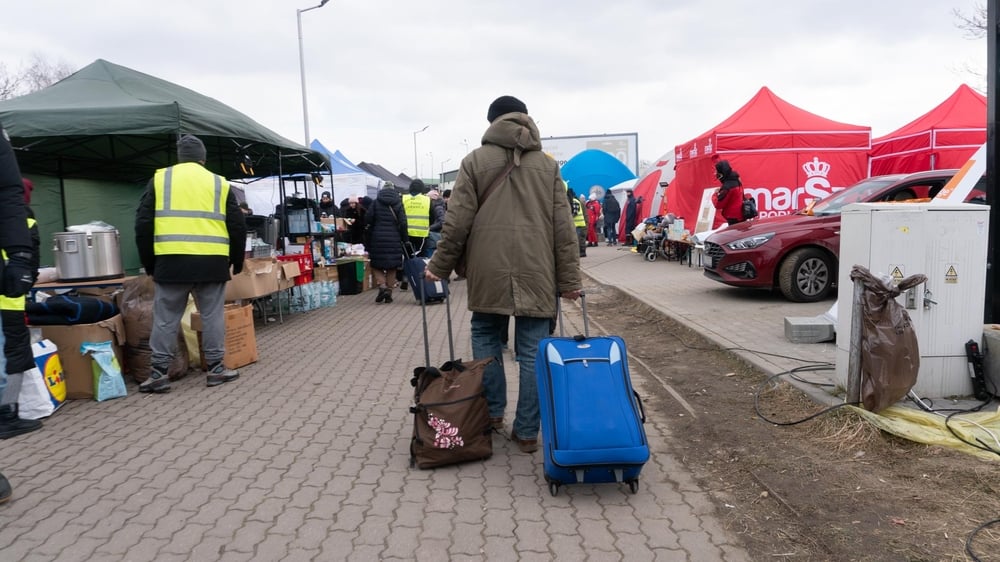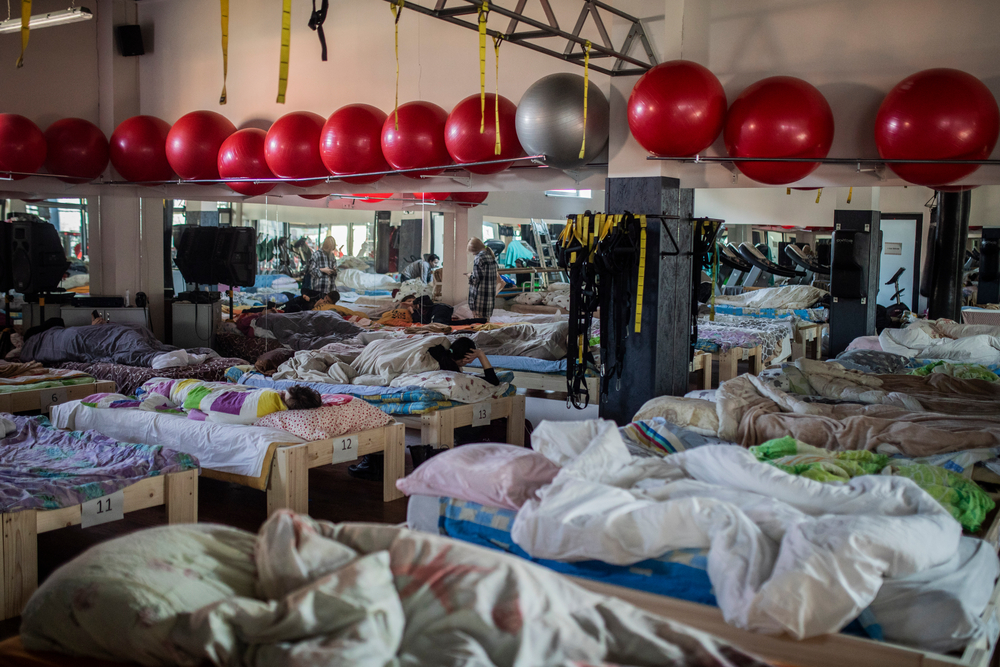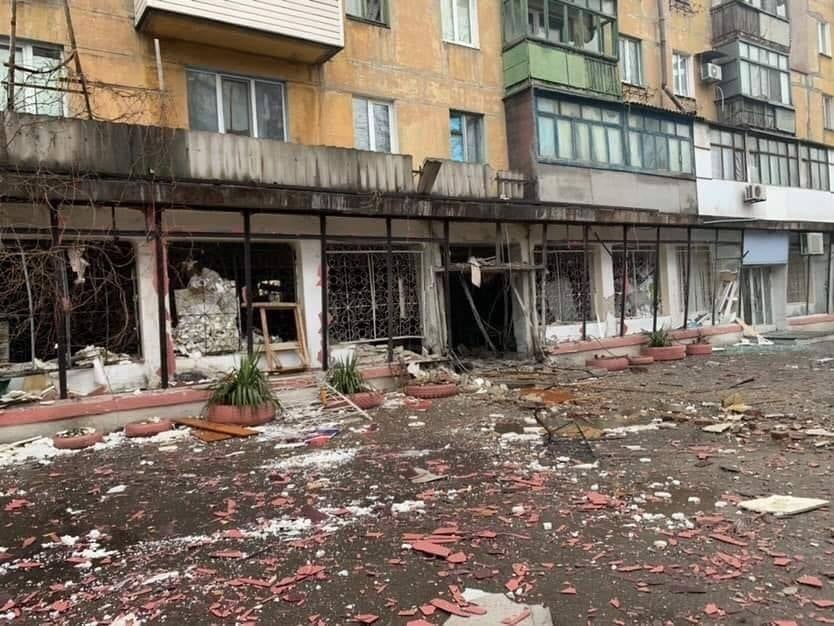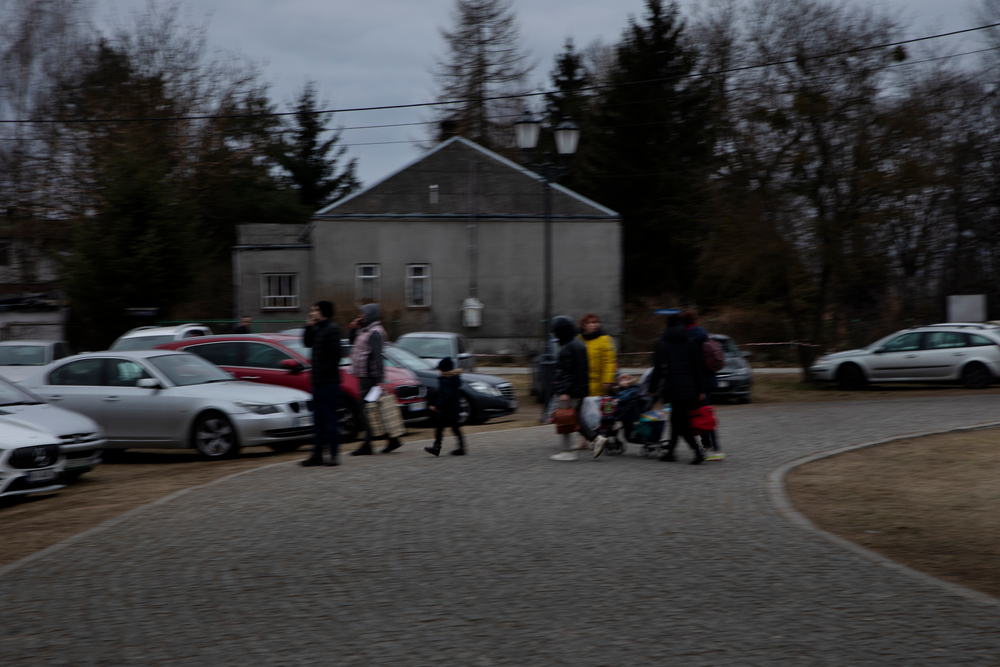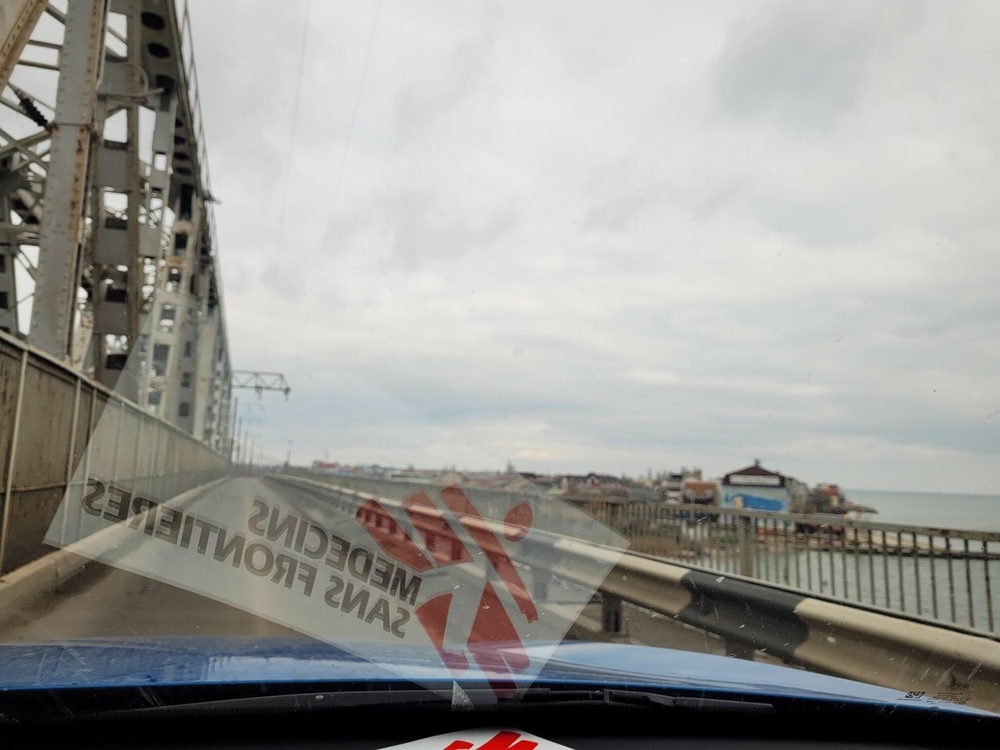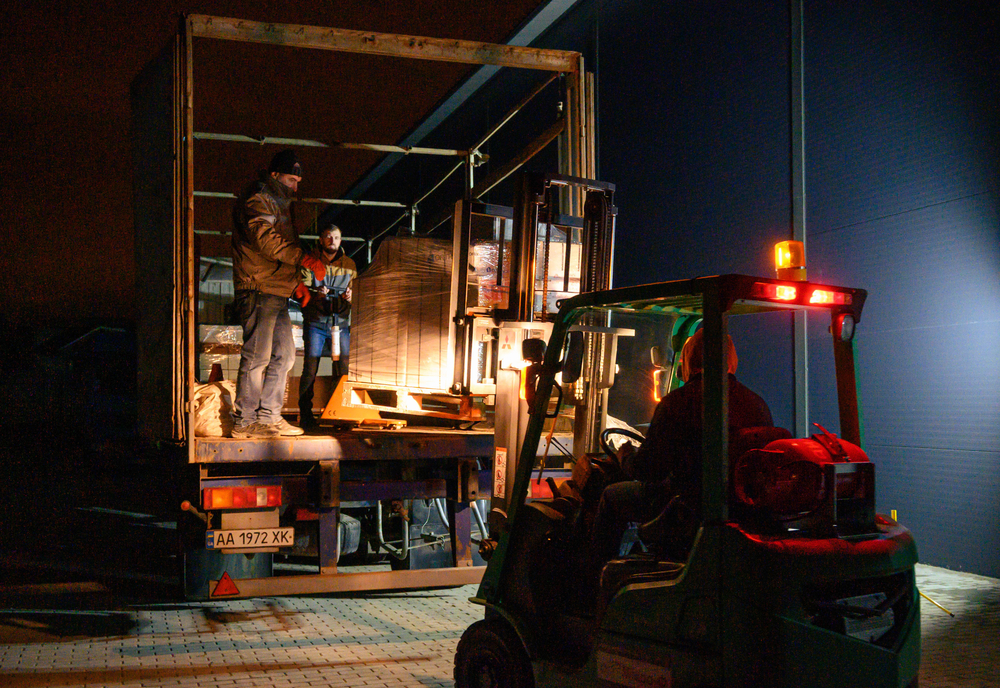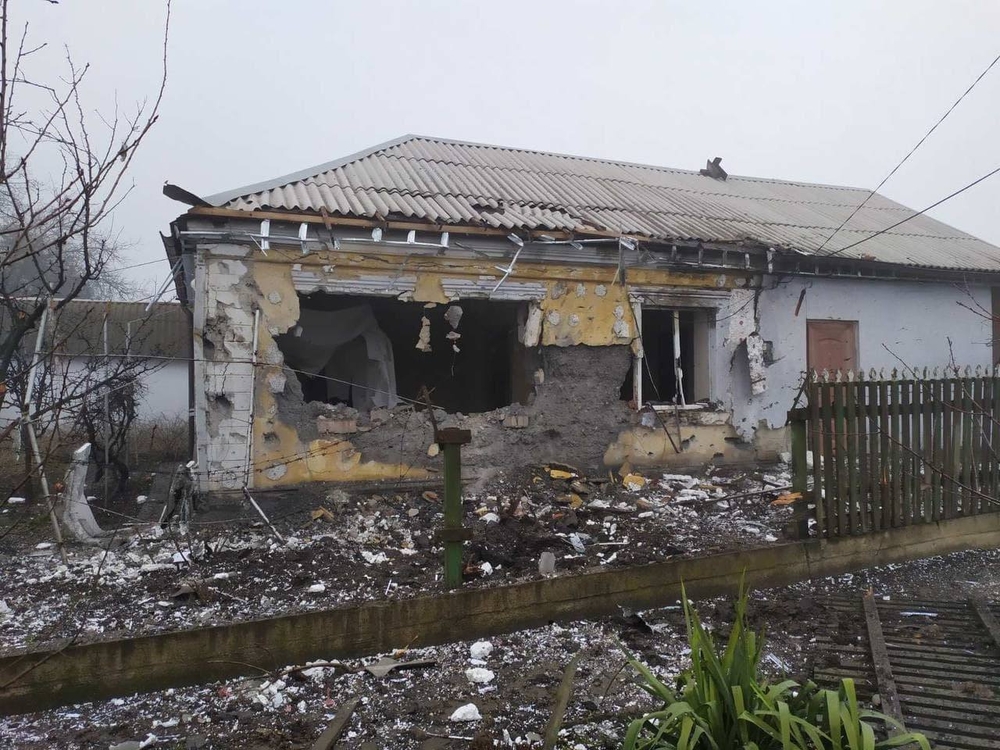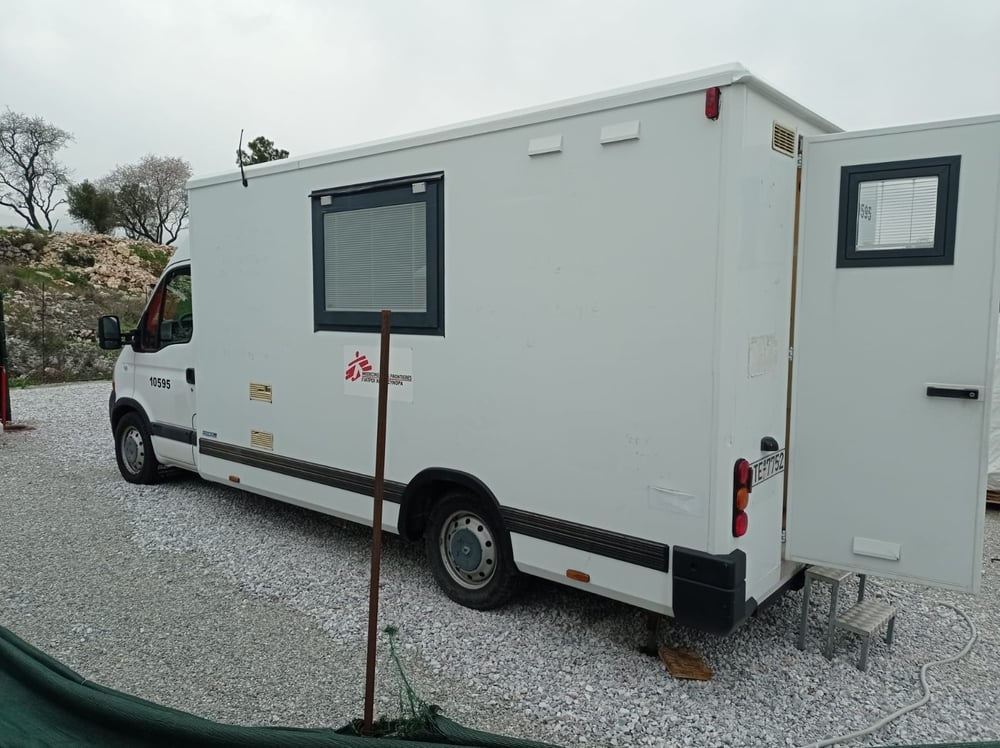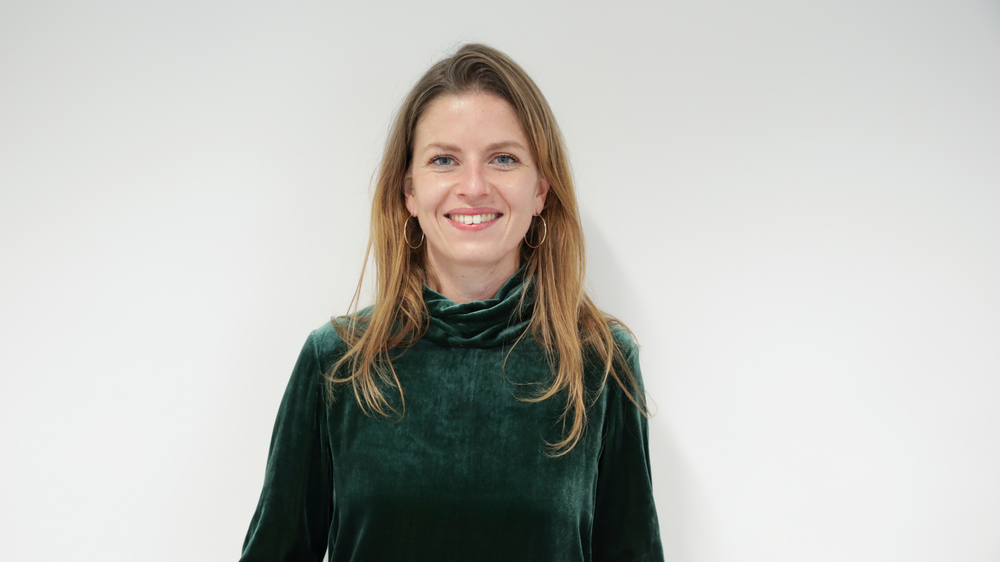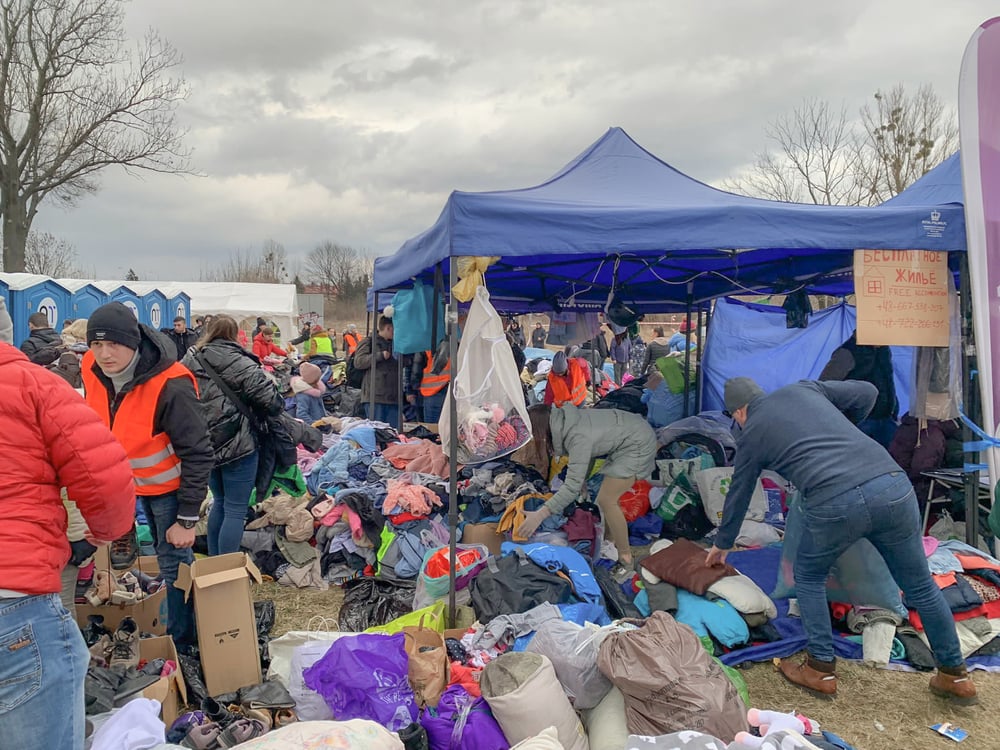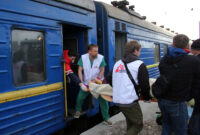Ukraine: How MSF helps amputee patients regain the joy of life
At a hospital in Vinnytsia, Doctors Without Borders/Médecins Sans Frontières (MSF) is running a project to rehabilitate patients injured by the war. Most of the patients have amputations and are unable to move far without additional assistance. Many of them stay in the hospital for months as they recover and undertake rehabilitation. When they are eventually able to return to their family, adapting to their old home life can be difficult – as a lot has changed for them, both physically and mentally.
MSF psychologist, Larysa Hryhorenko, and social worker, Avelina Pavlovska, help ease the transition from hospital life to a more regular one by organising recreational activities in the hospital and social outings outside it. The trips and creative workshops take place on a weekly basis, with up to 15 patients taking part each time.
“It is important to help patients leave the hospital, as this substantially improves their morale and enables them to reconnect to society. During the activities they get to have a good time, try something new, and understand that their injuries and traumas are not an obstacle to a full social life. It also teaches healthy coping strategies to deal with stress,” says Larysa.
Since MSF started implementing these activities in March 2023, dozens of patients have visited the zoo, the planetarium, been to the cinema, gone fishing, had the opportunity to ride horses and play with dogs, and enjoyed several barbecues. Apart from recreational trips, there are also regular excursions to the prosthetic and orthopaedic enterprise, where doctors explain what types of prostheses exist and how to choose them correctly.
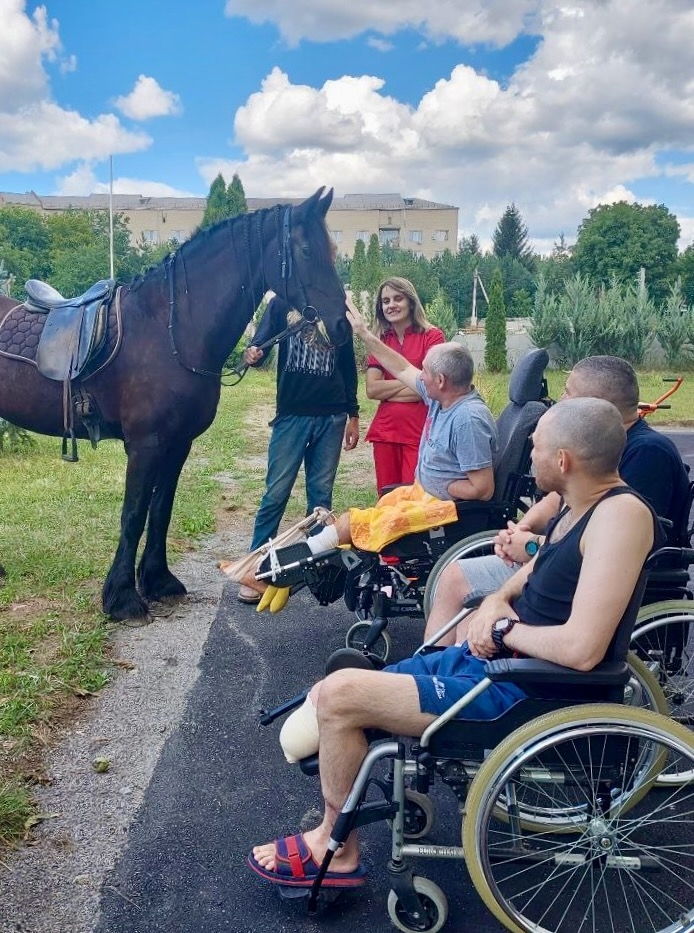
As many of the patients use wheelchairs, specialized transport must be arranged to attend events outside the hospital. “Patients in wheelchairs cannot get into a regular car. Our partners from the Harmony NGO provide us with free transport, as they have a special vehicle with a lift,” explains MSF social worker, Avelina.
For the same reason, it is important to factor in the accessibility of the location: to ensure a comfortable way to enter the building and check the availability of ramps and lifts in the room where the activities take place.
“These trips allow patients to understand that despite their injuries, they can continue to do fun and interesting things. They are pleasantly surprised that they can do all the things they used to do before,” says Larysa. “I also provide psychological support. If a person wants to share or discuss something during a trip, I am there for them. We care about what they are going through.”
Patients respond positively to the change the environment and say it helps their recovery. “It’s good to get away from the hospital atmosphere. A trip to the zoo even allowed me to return to my childhood memories. There I saw animals that I had last seen only in my childhood,” shared Oleksiy, a patient of the hospital.
MSF also invite artists and craftspeople to the hospital to run classes with patients. Between March to November, MSF organised 26 workshops. Patients were able to try their hand at acrylic and watercolour painting, clay modelling and ceramics, wood working, and t-shirt painting. Some of them made souvenirs to send to their families as gifts.
“Unfortunately, due to the injuries, some patients have lost their eyesight and developed tinnitus. They are physically unable to read, put together puzzles, or do anything like that. That’s why art became the best choice for us,” Larysa explains. “It’s not art therapy in the classical sense, we don’t interpret the works, we don’t dive into the core of the trauma. Rather, it is art therapy which helps to stabilise, immerse ourselves in the artistic process, and increase self-esteem,”
The benefits of art therapy cannot be overestimated. Patients relax and switch gears, and when everything works out, a person regains faith in their abilities and a desire to continue creating. The experience and confidence that people gain from art classes carry over into everyday life: many start doing things they never dared to do before.
“My phantom pains have decreased significantly. I don’t pay attention to them, especially when I’m painting. I have also become more accustomed to myself and am getting used to the fact that I have no arm and leg. This allows me to go a step further – to prepare for the fact that there will be a prosthesis there, which I will have to use,” says Oleksiy.
After setting up the rehabilitation program in hospitals in Kyiv and Vinnytsia 18 months ago, in December 2023, MSF handed over these activities to another medical NGO. MSF is now focusing on a similar rehabilitation program with war-wounded patients in Cherkasy.
